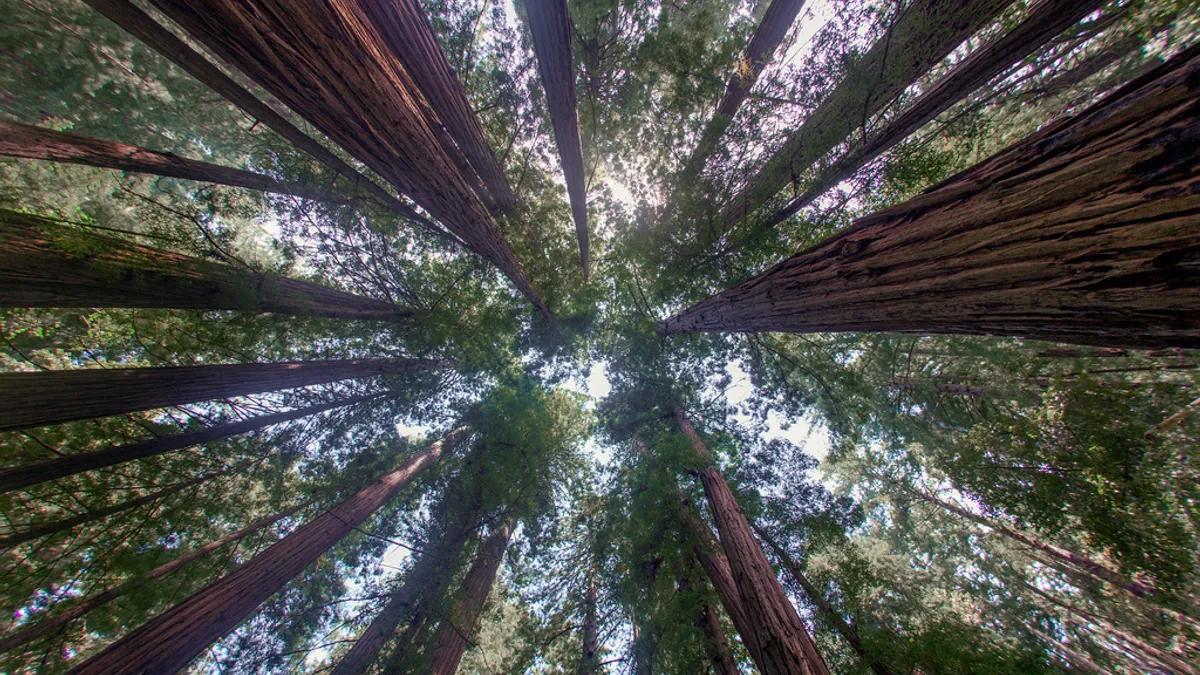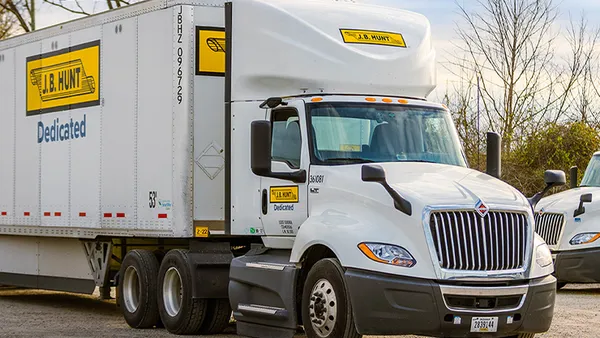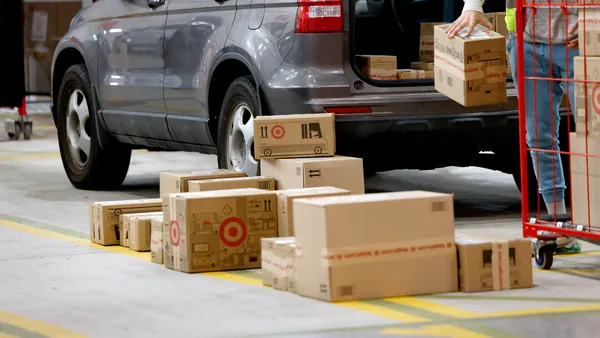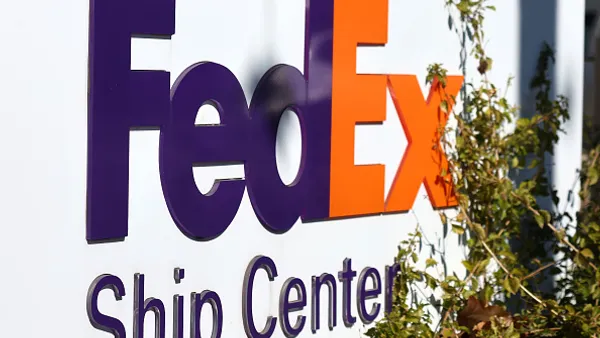Dive Brief:
- A new anti-deforestation alliance between 20 of the largest commodity producers in the world was announced at the World Economic Forum in Davos, Switzerland, Sustainability Brands reported Wednesday.
- The alliance will make use of a platform created by the World Resources Institute, which enables participants to assess supply chain risk via extreme-resolution maps of thinning tree canopies, fires and observation of independent farms and mills. The platform functions as an operational management system.
- Supply chains that are heavily dependent on agriculture should carefully monitor the risk of deforestation, particularly as investors grow ever more informed and demanding about sustainability.
Dive Insight:
Laboring in the background, environmental organizations also partner with industries to prevent deforestation, often in ways in which consumers remain unaware.
The World Wildlife Fund is working toward Zero Net Deforestation and Forest Degradation by 2020. A vigorous attempt to halt forest loss, achieving this goal involves interacting with the main industries affecting forest health in an attempt to reduce their negative impact. Going beyond the obvious purveyors of timber, wood products, pulp and paper, companies that include edibles like palm oil, soy and beef within their supply chain are also tapped for inclusion in the WWF initiative.
Awareness on the part of consumers is likewise essential, in order to support sustainable sources of the products that typically destroy a forest. Notably, apparel manufacturer Ralph Lauren has helped lead the way in adopting sustainability practices in conjunction with the Rainforest Action Network (RAN). Sourcing awareness has grown across the board for both product sustainability as well as human rights protections, and younger generations are demonstrating their willingness to change buying preferences based on supply chain ethics.












